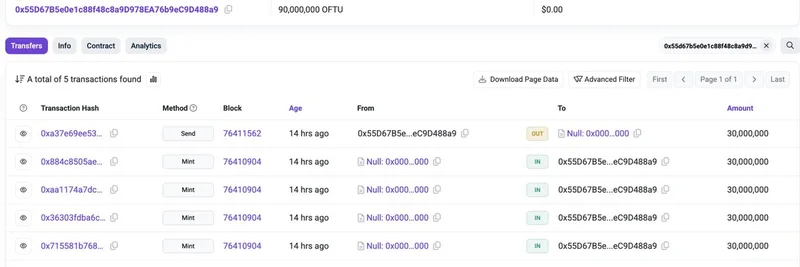In the wild world of crypto, exploits can happen in the blink of an eye, and the latest one hitting the headlines involves the Yala protocol. If you're not familiar, Yala is a decentralized finance (DeFi) project that lets users unlock Bitcoin's liquidity by minting $YU, a stablecoin backed by BTC. It's designed to let BTC holders earn yields across different blockchains like Polygon, Ethereum, and Solana without selling their Bitcoin. Pretty cool, right? But recently, a hacker found a way to game the system.
According to on-chain analytics firm Lookonchain, the hacker managed to mint a whopping 120 million $YU tokens directly on the Polygon network. That's no small feat—minting means creating new tokens, usually reserved for legitimate users who collateralize their BTC. In this case, it looks like an exploit allowed unauthorized creation of these stablecoins.
From there, the hacker didn't waste time. They bridged and sold about 7.71 million $YU across Ethereum and Solana, raking in roughly 7.7 million USDC—a stablecoin pegged to the US dollar. Bridging, for those new to crypto, is the process of transferring assets from one blockchain to another using protocols that connect them. This cross-chain maneuver let the hacker liquidate their ill-gotten gains quickly.
But that's not all. The hacker still has 22.29 million $YU sitting on Solana and Ethereum, plus another 90 million $YU unbridged on Polygon. To cash out further, they've swapped that 7.7 million USDC for 1,501 ETH (Ethereum's native cryptocurrency) and spread it across multiple wallets—likely to obscure the trail and make tracking harder.
This kind of exploit highlights the risks in DeFi, especially with cross-chain interactions. Yala's $YU is meant to be over-collateralized, meaning more BTC is locked up than the stablecoin's value to ensure stability. But if a vulnerability lets someone bypass that, it can lead to massive unauthorized minting, potentially destabilizing the token's peg or causing losses for the protocol.
For meme token enthusiasts and broader blockchain practitioners, this serves as a reminder: always double-check project security audits and be cautious with new protocols. While $YU isn't a traditional meme token, exploits like this can ripple through the ecosystem, affecting liquidity and trust in related assets. If you're holding or trading in DeFi, tools like Lookonchain are great for staying on top of these movements.
We'll keep an eye on any updates from Yala's team—hopefully, they'll patch this up and recover what they can. In the meantime, stay safe out there in the crypto jungle!


